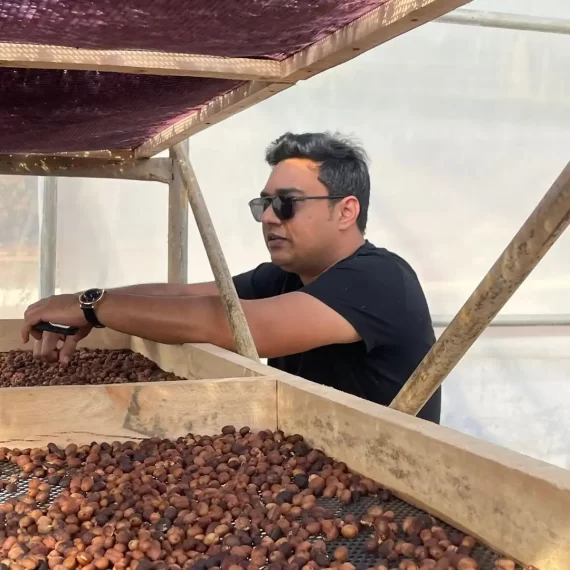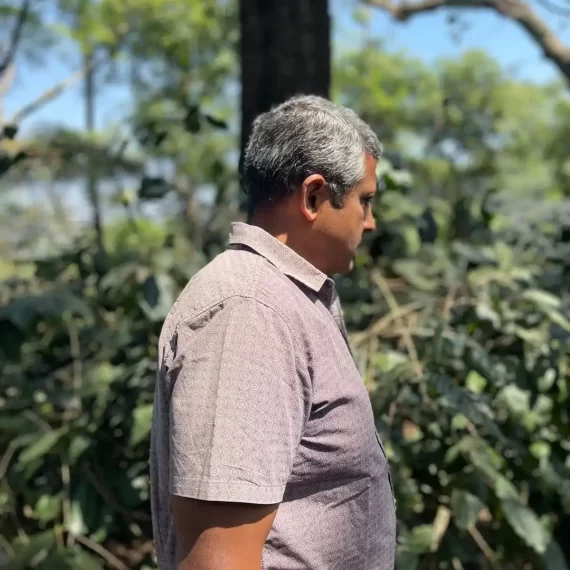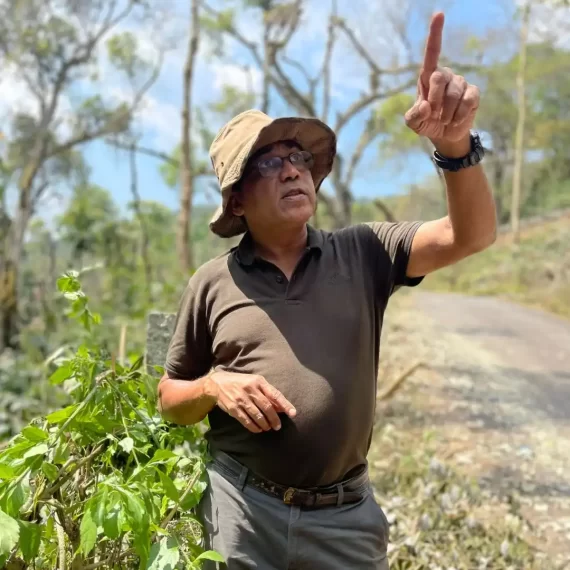
Las Adelitas

The Las Adelitas coffee project was created in the municipality of Tenango de Doria in the state of Hidalgo. It brings together about 8 farms and a group of women who were inspired by the women of the revolution, who, in addition to brewing coffee on the battlefields, also spread revolutionary ideas. They helped the allied groups by delivering telegrams and mail or by distributing weapons. They also worked as nurses, cooks and soldiers.
Without them, Mexico would not be the Mexico we know today. But they were never given the importance they had for a free and sovereign Mexico.
The chicas of the Las Adelítas project were inspired by the strength and independence of the women of that time and began to revolutionize coffee farming in the region. The pillars of their beautiful business are: comradeship and sisterhood , solidarity, sustainability, equality and inclusion.
Each of the women involved in coffee production in any way gets paid her fair share. From the growing and processing of the coffee, to the sorting of the beans, to the handmade embroidery on the bags that characterize Las Adelítas and shine in the paradise of jute bags of Mexican coffee.
Montze, one of the founders of Las Adelitas, adds: “According to the UN, 60% of the world’s poor are women, and one in five girls in the world live in extreme poverty. Although women do 66% of the world’s work and produce 50% of the world’s food, we receive only 10% of the income and own 1% of the property. This means that in our country, Mexico, 8 out of 10 women live in conditions of income poverty or social deprivation. The crisis associated with Covid-19 has deepened the inequality gap affecting women producers in the state of Hidalgo.
COUNTRY
Mexico
REGION
Tenango de Doria, Hidalgo
FARMS
finca Blanquit, finca Purpur, finca la Pahua
ALTITUDE
1000 – 1800 m
SIZE OF THE FARMS
1 – 6 ha
COFFEE VARIETIES
Typica, Marsellesa, Caturra, Geisha
ABOUT THE LOTS
We first visited the farm during the harvest season in April 2023, when we had the opportunity to spend a few days at Purpura Farm, located about 3 hours north of Mexico City. The drive there is challenging, on small narrow roads in the mountains, but the view from the farms down into the valley is worth it.
Las Adelitas Purpura (LOT MX-23-058)
Montze and Jose Juan come from a family of third generation coffee growers. The family gradually lost faith in the crop due to various problems and poor market prices. Montze and Juan started to save the farm left to them by Montze’s grandmother and began to take care of the plants with faith and love and plant more to get into growing choice coffee.
Finca Púrpura: altitude from 1400 to 1800 with an area of 6 hectares.
Caturra variety with natural process with carbonic maceration for 8 nights. The coffee scored 88 points at the Cup of Excellance.
Las Adelitas Blanquita (LOT MX-23-059)
Blanca Gomez Gomez is a farmer who, together with her family, produces fine coffees and who has given the coffees a new twist in this year’s harvest. She is gradually abandoning traditional coffee processing and switching to new processes.
Last year Blanca and her husband tasted coffees with the semi-washed, or honey process, and fell in love with them so much that they started processing coffees using the Red Honey method together with her husband and daughters. It’s a semi-washed process where the coffee is stripped of just the skin and most of the pulp on the stones remains. The beans are then macerated and dried. The income from the coffee feeds the family for the next year until the next harvest. Progressive processes thus provide the family with greater financial literacy, allowing them to embark on new processes and projects. This lot was selected by Las Adelitas for the National Cup of Excellence 2023.
Finca Blanquit: elevation 1000 – 1400 m with an area of 2 ha.
This lot is processed using the Red Honey method with carbonic maceration for 7 nights, Typica and Marsellesa varieties.
Las Adelitas La Pahua (LOT MX-23-057)
They started at Pahua Farm more than 15 years ago when the family inherited the land, and the husband left for the United States with the intention of improving their lives. In the meantime, Señora began renovating the coffee plantation so that they could live together and side by side after her husband’s arrival from the United States.
“Our children have grown up and moved to the United States and today we hope that they will return to the country where they were born and that we will be reunited. Our farm is located on three lots in Loma del Progreso, municipality of Tenango de Doria, Hidalgo. The farm has the advantage of being located at an altitude of 1,200 meters above sea level with a mild microclimate.”
The varieties grown on the farm are Pahua Typica, Marsellesa and a few Gesha bushes.
The coffee is processed using a manual wet mill. This is followed by storing the coffee in blue plastic barrels for anaerobic fermentation with carbonic maceration. The coffee is dried on African beds, one of the innovations the farm has undergone in recent harvests.
La Pahua farm: 1 200 m altitude and 3 hectares of land.
This lot is processed using the honey method, Typica and Marsellesa varieties.





